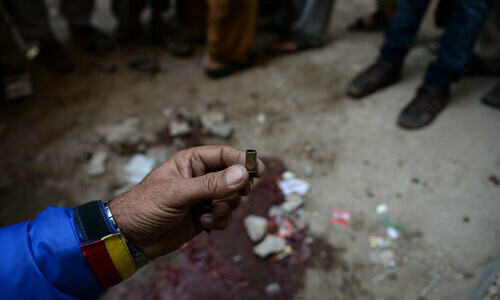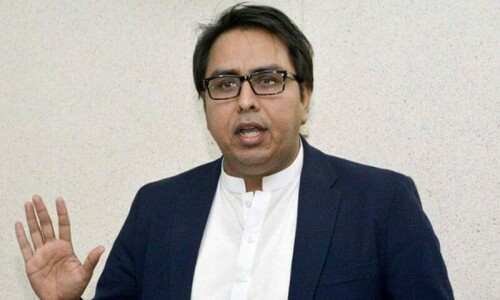ISLAMABAD: More Muslims have been killed by Muslims in wars in Afghanistan and Pakistan, compared to the casualties infour wars fought with India, former Awami National Party (ANP) senator Afrasiab Khattak said on Friday.
“It is an important development that the governments of both countries have decided to get their houses in order for peace. It is even more important that women are included in establishing peace in the region,” Mr Khattak said at the launch of a research study titled Impact of Radicalisation on Women in Pakistan and Afghanistan.
The study aimed to document the impact of radicalisation and violent extremism on the physical, emotional, social, political and economic dimensions of women’s lives, and the strategies they have employed to deal with and counter the varied manifestations of radicalisation.
The study was conducted by Aware Girls, an organisation led by young women working towards gender equality, women’s empowerment and peace in Pakistan.
Speaking at the launch, Mr Khattak was critical of radicalisation embedded in the state, particularly during Gen Ziaul Haq’s regime. He believed that Gen Zia corrupted the system by encouraging flawed and hateful material, depriving tolerant citizens of their basic rights to belief and freedom of expression.
Mr Khattak also described the war in Afghanistan, with its repercussions in Pakistan, as the longest war and a testing ground for some of the most sophisticated weaponry ever used.
“However, women have suffered more [due to] extremism that has been fuelled for the last 40 years. They must be heard and included in the peace processes in both countries,” he said.
Other speakers were also critical of Gen Zia for the increasing radicalisation in both countries.
Feminist activist Farzana Bari said Gen Zia’s Islam began and ended with the suppression of women, degrading their lives and worth.
“Radicalisation captures the mindsets of those who deny women their right to education, right to vote and right to health. Radicalisation has now spread to urban centres, where examples of violation of the rights of women are common,” she said.
Ms Bari emphasised the development of skills among women and access to education to reduce their dependence on men, and equal participation in all walks of life, including politics.
Sheela Qayumi from the Pak-Afghan Pul-i-Niswan Baraye Aman in Afghanistan discussed the study in some detail.
She said research was carried out in 13 provinces in Afghanistan, and found that women lost their family members, were disabled, were forced to leave their homes, were internally displaced and faced sexual violence in the Afghan conflict.
The study also said that women in Pakistan were victims of violent extremism by militants, which manifested in explosions, targeted killings, dress codes, restrictions to mobility and so on. There were also victims of military operations against militants, particularly in Swat and the Federally Administered Tribal Areas, where indiscriminate and disproportionate violence had taken a toll on their lives.
Published in Dawn, September 23rd, 2017















































Dear visitor, the comments section is undergoing an overhaul and will return soon.